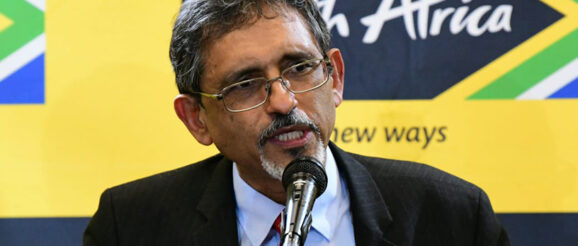Speed of tech innovation reshaping BRICS economies

The speed of technological innovations is reshaping the economies of BRICS member states and global economies.
This was the word from trade, industry and competition minister Ebrahim Patel, reflecting on the issues facing global economies, as he welcomed delegates at the 15th BRICS Summit, which officially kicked off in Johannesburg this morning.
The summit is held under the theme: “BRICS and Africa: Partnership for mutually accelerated growth, sustainable development and inclusive multilateralism” and is expected to last until Thursday.
The summit brings together heads of state and government from Brazil, Russia, India, China and South Africa, with at least 30 other heads of state and government from Africa and all across the world expected to attend.
President Cyril Ramaphosa set the tone for the summit on Sunday evening, saying the BRICS grouping has the ability to “collectively shape global dynamics and acting together, have the potential to drive significant changes in the world economy and international relations.
“This BRICS Summit is particularly important as it is being held as the world is confronted by fundamental challenges that are bound to determine the course of international events for years to come.
“Our world has become increasingly complex and fractured, as it is increasingly polarised into competing camps. Multilateralism is being replaced by the actions of different power blocs, all of which we trade with, invest with, and whose technology we use,” said Ramaphosa.
The Sandton Convention Centre has been a hive of activity, as delegates from across the globe congregate to take part in the first in-person summit since the COVID-19 outbreak.
Patel told delegates that the world looks different from five years ago when the country hosted the 10th BRICS Summit in 2018.
“Today, the world is more polarised, climate change is more pressing and the speed of technological innovation is rapidly increasing. These trends are in turn reshaping our economies and societies in more profound ways than most of us can project,” he said.
Despite challenges, he said the council is optimistic about the future.
The minister reflected on some of the institutions that were built by the bloc, such as the New Development Bank, which drives investment and infrastructure, and supports economies and societies.
Patel said the power of science, technology and innovation must be harnessed to solve some of the world’s problems, from developing lifesaving vaccines, to green technologies that can decarbonise the energy mix.
Other developments such as the African Continental Free Trade Area, which has the potential to bring together a market of 1.3 billion people and provide a much-needed boost to African industrialisation, must be actively pursued, he added.
